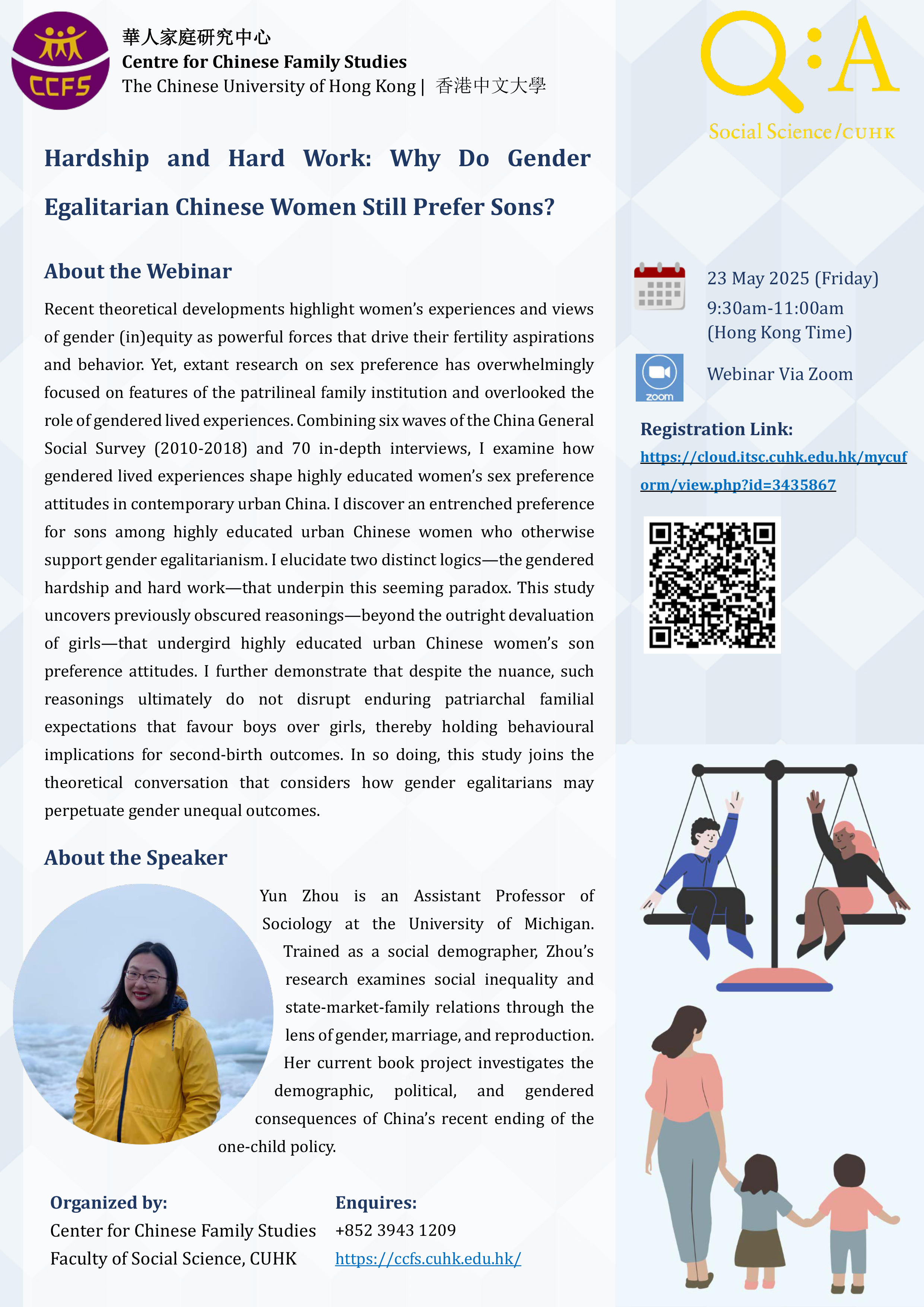Speaker: Prof. Danielle Kane (Assistant Professor, Department of Sociology, Purdue University) Prof. Yun Zhou (Assistant Professor of Sociology, University of Michigan)
Time: 9:30am–11:00am, 23 May 2025 (Friday, HK Time)
Venue: ZOOM (ZOOM Link will be sent to registered audience after finished the e-registration)
Registration: https://cloud.itsc.cuhk.edu.hk/mycuform/view.php?id=3435867
About the Webinar:
Recent theoretical developments highlight women’s experiences and views of gender (in)equity as powerful forces that drive their fertility aspirations and behavior. Yet, extant research on sex preference has overwhelmingly focused on features of the patrilineal family institution and overlooked the role of gendered lived experiences. Combining six waves of the China General Social Survey (2010-2018) and 70 in-depth interviews, I examine how gendered lived experiences shape highly educated women’s sex preference attitudes in contemporary urban China. I discover an entrenched preference for sons among highly educated urban Chinese women who otherwise support gender egalitarianism. I elucidate two distinct logics—the gendered hardship and hard work—that underpin this seeming paradox. This study uncovers previously obscured reasonings—beyond the outright devaluation of girls—that undergird highly educated urban Chinese women’s son preference attitudes. I further demonstrate that despite the nuance, such reasonings ultimately do not disrupt enduring patriarchal familial expectations that favour boys over girls, thereby holding behavioural implications for second-birth outcomes. In so doing, this study joins the theoretical conversation that considers how gender egalitarians may perpetuate gender unequal outcomes.
About the Speaker:
Yun Zhou is an Assistant Professor of Sociology at the University of Michigan. Trained as a social demographer, Zhou’s research examines social inequality and state-market-family relations through the lens of gender, marriage, and reproduction. Her current book project investigates the demographic, political, and gendered consequences of China’s recent ending of the one-child policy.

